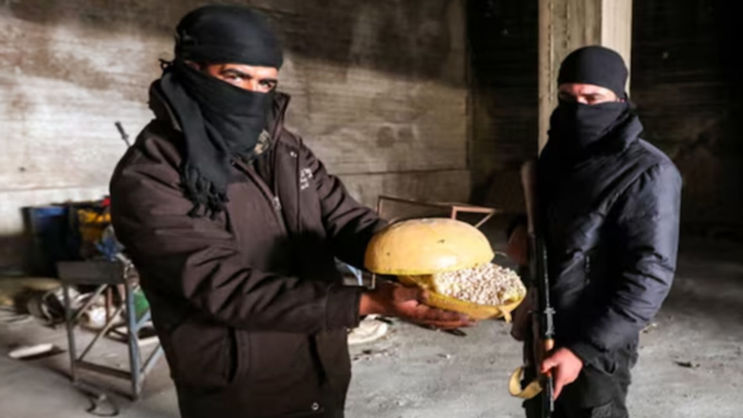After Syrian President Bashar Al Assad’s regime collapsed, rebel groups made a shocking discovery. They uncovered the massive export of Captagon, a banned drug. Islamist-led fighters seized military bases and distribution hubs. The amphetamine had flooded hidden markets across the Middle East.
HTS Leads the Raid
The Hayat Tahrir al-Sham (HTS) group took the lead in the search operation. They uncovered a vast haul of Captagon and vowed to destroy it. The warehouse, located on the outskirts of Damascus, had hidden the pills inside electrical components meant for export, according to reports.
HTS fighters soon linked the factory to Maher al-Assad, the president’s brother, and Amer Khiti. Maher al-Assad, who is believed to be on the run, is accused of controlling the Captagon trade. Khiti, on the other hand, was sanctioned by the UK government in 2023 for facilitating the smuggling of drugs.
The Dark Side of the Assad Regime
Inside the warehouse, HTS found thousands of Captagon pills stuffed into copper coils of new household voltage stabilizers. HTS fighter Abu Malek al-Shami stated, “We found a large number of devices that were stuffed with packages of Captagon pills meant to be smuggled out of the country. It’s a huge quantity. It’s impossible to tell.”
Furthermore, rebels claim that the revenue from Captagon sales was crucial to sustaining Assad’s regime throughout Syria’s 13-year civil war. In fact, Captagon became Syria’s largest export, surpassing all legal exports, as reported.
However, the Captagon trade caused a devastating drug addiction crisis in Gulf states, threatening the region’s social stability. As Carnegie scholar Hesham Alghannam explained, “Assad leveraged Captagon trafficking as a means of exerting pressure on the Gulf states, notably Saudi Arabia, to reintegrate Syria into the Arab world.”
HTS Destroys Captagon Stockpiles
In response, HTS fighters took action to destroy the Captagon supplies. One HTS fighter explained, “We destroyed and burned it because it’s harmful to people. It harms nature and people and humans.”
As the rebel groups continue to free prisoners and expose the regime’s hidden dealings, they are uncovering the dark side of Assad’s rule, one complex at a time.























